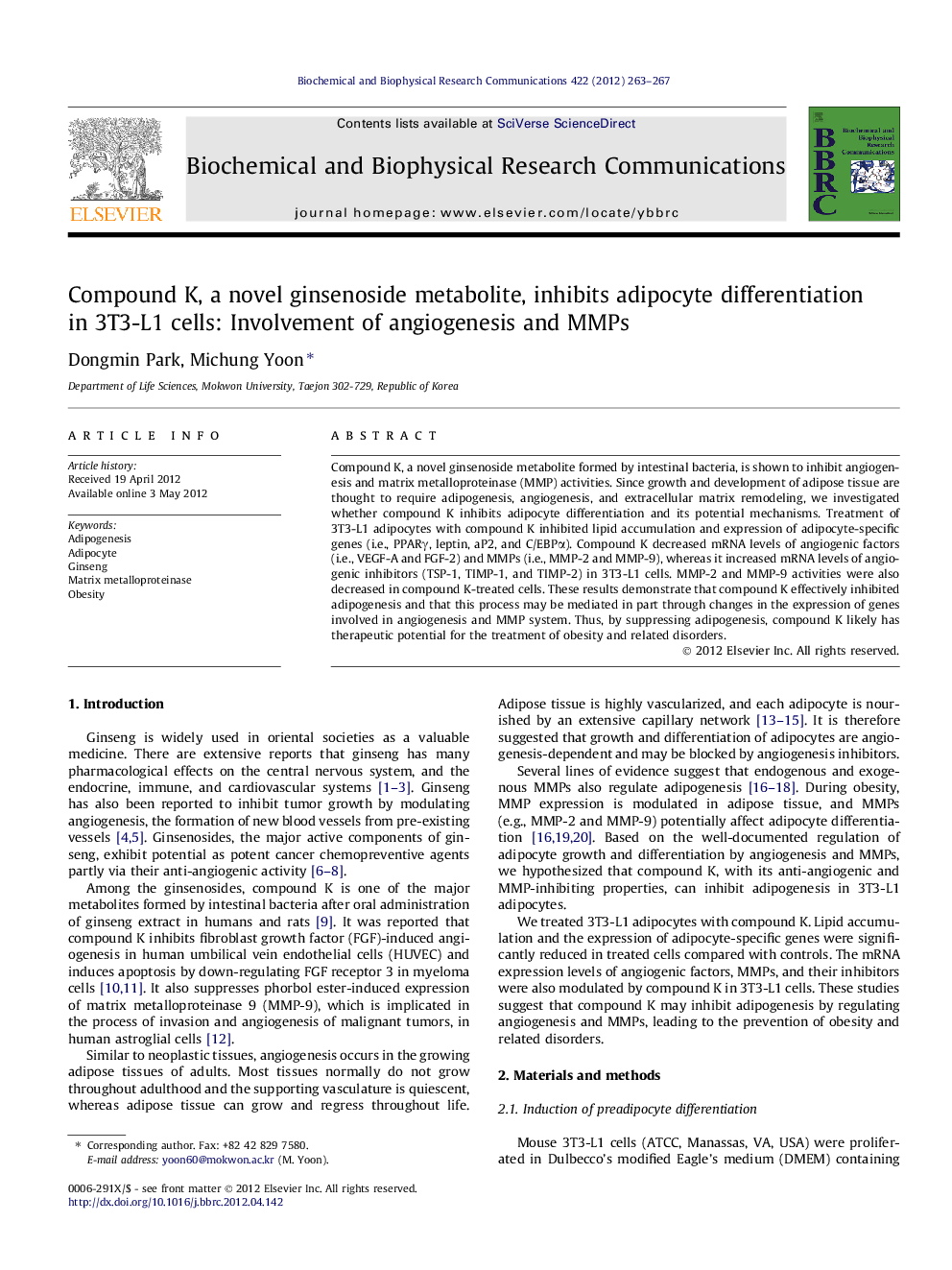| Article ID | Journal | Published Year | Pages | File Type |
|---|---|---|---|---|
| 1929689 | Biochemical and Biophysical Research Communications | 2012 | 5 Pages |
Compound K, a novel ginsenoside metabolite formed by intestinal bacteria, is shown to inhibit angiogenesis and matrix metalloproteinase (MMP) activities. Since growth and development of adipose tissue are thought to require adipogenesis, angiogenesis, and extracellular matrix remodeling, we investigated whether compound K inhibits adipocyte differentiation and its potential mechanisms. Treatment of 3T3-L1 adipocytes with compound K inhibited lipid accumulation and expression of adipocyte-specific genes (i.e., PPARγ, leptin, aP2, and C/EBPα). Compound K decreased mRNA levels of angiogenic factors (i.e., VEGF-A and FGF-2) and MMPs (i.e., MMP-2 and MMP-9), whereas it increased mRNA levels of angiogenic inhibitors (TSP-1, TIMP-1, and TIMP-2) in 3T3-L1 cells. MMP-2 and MMP-9 activities were also decreased in compound K-treated cells. These results demonstrate that compound K effectively inhibited adipogenesis and that this process may be mediated in part through changes in the expression of genes involved in angiogenesis and MMP system. Thus, by suppressing adipogenesis, compound K likely has therapeutic potential for the treatment of obesity and related disorders.
► Compound K inhibits lipid accumulation and adipose specific gene expression in adipocytes. ► The expression of angiogenic factors and MMPs is markedly modulated by compound K. ► Compound K may inhibit adipogenesis in part through changes in angiogenesis and MMPs.
